Time Energy

How can I save time and energy when doing laundry ?
Doing laundry can be a time-consuming and energy-draining task. However, with the right strategies and habits, you can make this chore more efficient and less taxing. Here are some tips on how to save time and energy when doing laundry: 1. Sort your clothes by color, fabric, and stain level. 2. Use a front-loading washer for water and energy savings. 3. Choose the right detergent, preferably high-efficiency (HE) for HE washers. 4. Use cold water for most loads to save energy. 5. Select the appropriate wash cycle based on the type of clothing. 6. Don't overload your machine to ensure even cleaning and avoid damage. 7. Dry efficiently by using the right setting, drying similar items together, and keeping the lint screen clean. 8. Fold and put away promptly to prevent wrinkles and reduce ironing. 9. Maintain your washer and dryer for efficiency and longevity. 10. Consider a laundry service or laundromat for bulk loads or time constraints. By implementing these strategies, you can streamline your laundry routine, saving both time and energy. Remember, finding what works best for your lifestyle and sticking to a consistent schedule will help make laundry day much more manageable.

How have building energy efficiency standards evolved over time ?
The evolution of building energy efficiency standards has been significant over the years, with a focus on reducing energy consumption and environmental impact. Early beginnings saw little consideration for energy consumption, leading to high utility bills and greenhouse gas emissions. The rise of energy conservation in the 1970s led to the development of the first building energy efficiency standards, focusing on measures such as improved insulation and efficient heating and cooling systems. The advent of green buildings in the 1990s brought new standards that minimized environmental impact through the use of renewable energy sources and sustainable materials. Technology has played a significant role in improving energy efficiency, with advances such as smart thermostats and LED lighting. Looking to the future, there is likely to be a greater emphasis on reducing energy consumption in buildings, leading to stricter standards and the development of new technologies. Overall, building energy efficiency standards have evolved to become an essential part of modern building design and construction.

You have made several mistakes in running. Pay attention to diet and provide correct energy for running

Can using energy-efficient appliances help cut down electricity consumption ?
Energy-efficient appliances can help cut down electricity consumption by using less power than traditional counterparts, leading to cost savings and environmental benefits. Examples include LED light bulbs, smart thermostats, and energy star certified refrigerators.
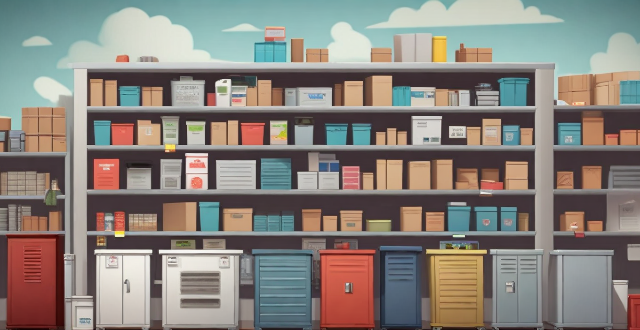
What policies are necessary to encourage the adoption of energy storage solutions ?
Energy storage solutions are becoming increasingly important in the modern world. They provide a way to store excess energy generated by renewable sources, such as solar or wind power, for use at a later time. This can help to balance the grid and ensure a stable supply of electricity....

How does clean energy investment compare to traditional energy investment ?
Investing in energy sources is crucial for the development and growth of any economy. However, the choice between clean energy investment and traditional energy investment has become a significant topic of discussion in recent years. This comparison will explore the differences between these two types of investments, focusing on their costs, benefits, and potential impacts on the environment and society.
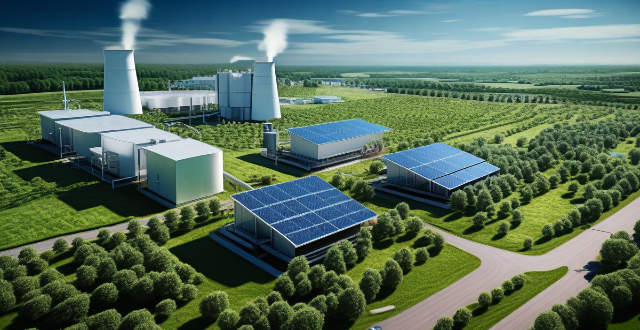
How do renewable energy sources contribute to industrial energy efficiency improvements ?
Renewable energy sources like solar, wind, hydropower, biomass, and geothermal power play a crucial role in enhancing industrial energy efficiency. They offer benefits such as reduced greenhouse gas emissions, lower operating costs, and increased reliability. By adopting these technologies, businesses can reduce their reliance on fossil fuels, increase energy independence, and contribute to a more sustainable future.
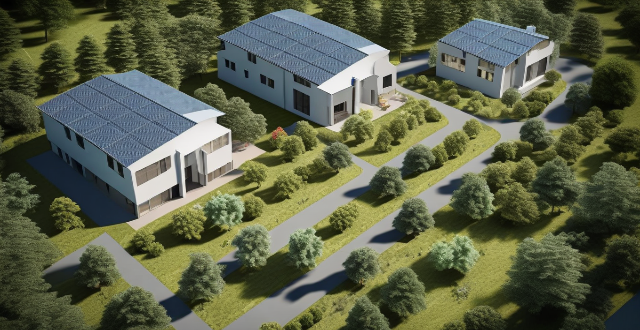
How is digital technology transforming the energy market ?
Digital technology is revolutionizing the energy market by improving efficiency, enhancing renewable energy sources, facilitating decentralized energy production, enabling smart buildings and homes, and promoting transparency and accountability. This transformation is crucial for meeting the increasing global demand for energy while addressing environmental concerns.

How do flywheels provide energy storage, and what are their advantages ?
Flywheels store energy as rotational kinetic energy, which can be converted back into electrical or mechanical energy. They have a high power density, long lifespan, fast response time, low environmental impact, and high efficiency, making them suitable for applications like regenerative braking systems in electric vehicles and grid stabilization.

What are some effective strategies for doing laundry in less time ?
Effective strategies for doing laundry in less time include planning ahead, using a larger capacity washer, pretreating stains, using cold water and high-efficiency detergent, using the quick wash cycle, and hanging clothes to dry. These strategies can save time, energy, and money while still getting clothes clean and fresh.
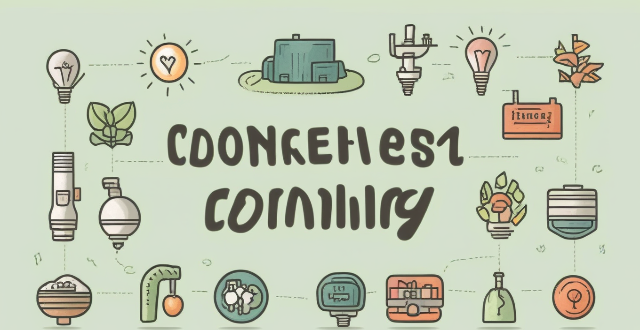
What is the relationship between energy-efficient appliances and overall energy savings ?
The text discusses the connection between energy-efficient appliances and overall energy savings, defining such appliances as those engineered to meet specific efficiency standards. These devices reduce direct energy consumption through lower power requirements and advanced technology, leading to long-term cost benefits and environmental advantages like reduced greenhouse gas emissions. To maximize savings, consumers should research and maintain these appliances properly and replace older models. The relationship underscores the importance of energy-efficient appliances in achieving energy savings for a more sustainable future.
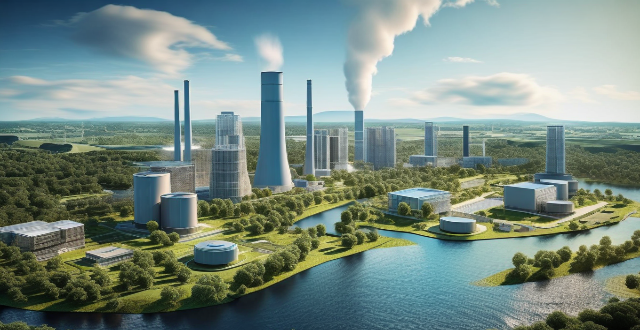
How effective is solar power as an alternative energy source ?
Solar power is a sustainable and environmentally friendly energy source with decreasing costs and increasing efficiency due to technological advancements.

What are the most effective ways to improve energy efficiency in buildings ?
Improving energy efficiency in buildings is essential for environmental and financial reasons. Effective methods include proper insulation, efficient lighting solutions, using energy-efficient appliances, smart controls, harnessing renewable energy sources, and conserving water. These strategies not only reduce operational costs but also create healthier spaces while contributing to sustainability.
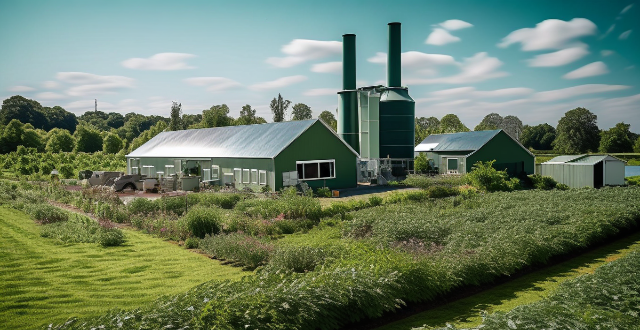
What are the benefits of investing in clean energy ?
Investing in clean energy offers benefits including reduction in greenhouse gas emissions, job creation, energy security, health benefits, and cost savings. It is a smart investment that aligns with our responsibility to protect the environment for future generations.
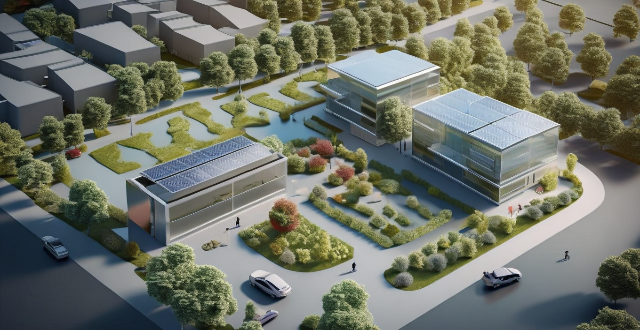
How does ecological design impact energy efficiency in buildings ?
Ecological design significantly impacts energy efficiency in buildings through various strategies like passive solar design, advanced insulation, renewable energy sources, energy-efficient appliances, water conservation, and sustainable material choices. These practices reduce energy consumption, lower operational costs, and minimize environmental harm.

How can I improve my productivity by managing my time better ?
Managing your time effectively is crucial for improving productivity. Here are some tips on how to do so: Create a To-Do List - Prioritize Tasks - Break Down Larger Tasks Use Time Management Techniques - Pomodoro Technique - Time Blocking Eliminate Distractions - Turn Off Notifications - Create a Distraction-Free Environment Take Breaks and Rest - Schedule Breaks - Get Enough Sleep Learn to Say No - Set Boundaries - Delegate Tasks
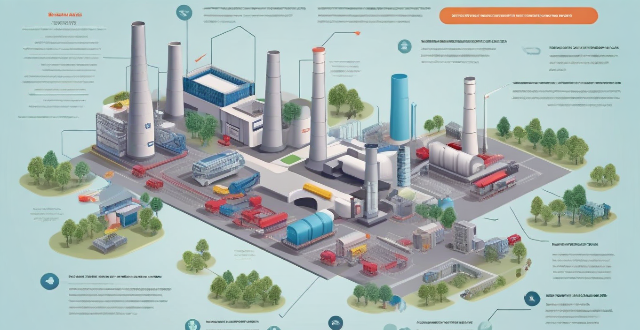
How do clean production technologies impact energy efficiency and conservation ?
Clean production technologies significantly enhance energy efficiency and conservation by reducing waste, optimizing processes, integrating renewable energy, monitoring energy consumption, and promoting product longevity. These strategies not only conserve energy but also align with broader sustainable development goals, offering economic benefits, environmental stewardship, and social responsibility.
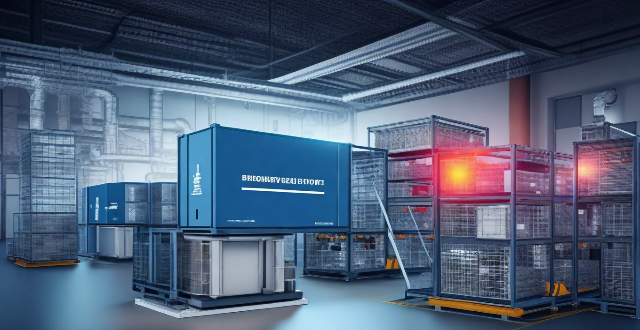
What are some potential challenges and drawbacks of distributed energy systems ?
Distributed energy systems (DES) offer benefits such as increased energy independence and reduced carbon emissions, but they also present several challenges. These include interconnection issues with the power grid, reliability concerns due to weather dependency and storage limitations, high upfront costs, complex permitting processes, operation and maintenance expenses, environmental impacts from resource extraction and waste management, potential job losses in traditional energy sectors, and shifts in energy market dynamics. Addressing these challenges requires technological innovation, policy development, and consumer education.

How do distributed energy systems contribute to energy efficiency and sustainability ?
Distributed energy systems (DES) play a significant role in improving energy efficiency and sustainability. DES refers to a comprehensive energy utilization system located near the end-users, which can operate independently or in conjunction with the grid. It encompasses various technologies such as combined heat and power (CHP), renewable energy, energy storage, and fuel cells. Here is a detailed exploration of how distributed energy systems contribute to energy efficiency and sustainability: 1. **High Energy Efficiency** - **Combined Heat and Power (CHP)**: CHP systems generate both electricity and heat simultaneously, providing an overall efficiency of up to 80%-90%. This is considerably higher than traditional centralized power plants, which typically have an efficiency of around 40% for advanced coal-fired power plants. - **Energy Cascade Utilization**: Distributed energy systems utilize energy cascading, where the byproducts of one process are used as inputs for another. For example, waste heat from electricity generation is used for heating or cooling, maximizing energy utilization. - **Reduced Transmission Losses**: Due to their proximity to consumers, DES reduces the need for long-distance transmission of electricity, thereby minimizing transmission losses compared to centralized power systems. 2. **Environmental Protection** - **Low Emissions**: Distributed energy systems often use clean energy sources like natural gas, solar, and wind, which have lower emissions compared to traditional coal or oil combustion. - **Renewable Energy Integration**: Distributed energy systems can easily integrate renewable energy sources like solar panels and wind turbines, promoting the use of sustainable energy. - **Waste Reduction**: By using waste heat and integrating multiple forms of energy production, DES helps reduce energy waste and its associated environmental impact. 3. **Economic Benefits** - **Cost Savings**: Distributed energy systems can reduce energy costs by decreasing transmission and distribution expenses. They also provide more stable energy prices compared to fluctuating grid rates. - **Infrastructure Investment Reduction**: Since DES requires less infrastructure compared to large-scale power plants and transmission networks, it can lead to significant cost savings in infrastructure investment. - **Market Potential**: The development of DES has opened up new markets and business opportunities, especially in the sale and maintenance of distributed energy equipment. 4. **Enhanced Reliability and Resilience** - **Decentralized Architecture**: The decentralized nature of DES means that if one system fails, others can still operate, ensuring continuous energy supply. - **Storm and Disaster Resilience**: During large-scale disasters or extreme weather events, DES can serve as a crucial energy source when centralized power systems fail. 5. **Promotion of Smart Grid Development** - **Integration with Smart Grids**: Distributed energy systems can be integrated with smart grids, enabling two-way flows of electricity and information, which enhances overall grid efficiency and responsiveness. - **Demand Response Management**: DES allows for better demand response management, where consumption can be adjusted based on real-time supply and demand conditions, further enhancing energy efficiency. Additionally, there are several challenges and considerations for the widespread adoption of distributed energy systems: - **Technical Challenges**: The integration of multiple energy sources requires advanced technical expertise and sophisticated control systems. - **Policy Support**: While policies increasingly support DES, more comprehensive regulations and incentives are needed to encourage wider adoption. - **Economic Viability**: Although DES offers economic benefits, the initial investment can be high, which may limit access for some users. In summary, distributed energy systems contribute significantly to energy efficiency and sustainability through high energy utilization efficiency, environmental protection, economic benefits, enhanced reliability and resilience, and promotion of smart grid development. Despite certain challenges, the advantages of DES make it a critical component of future energy strategies.
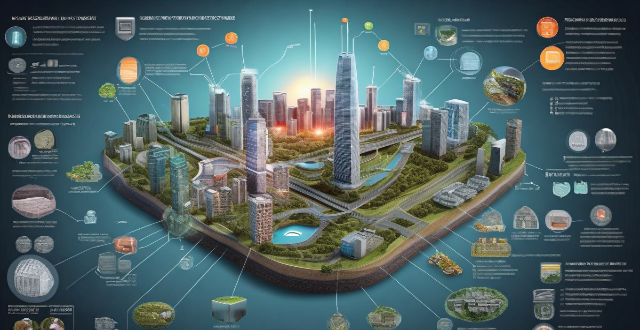
What is the future of nuclear energy in the energy market ?
The future of nuclear energy is promising, as it has advantages such as low carbon emissions, high energy density and baseload power. However, challenges like safety concerns, waste disposal, and high costs must be addressed. Increasing demand for clean energy, advances in technology, and integration with renewable sources can drive the growth of nuclear energy in the future.

What is the role of insulation in energy-efficient buildings ?
Insulation is crucial for energy-efficient buildings, reducing heat loss and gain, improving comfort and indoor air quality, lowering energy consumption and costs, enhancing building durability and longevity, and meeting energy efficiency standards.

How do energy-efficient buildings affect a company's bottom line ?
Energy-efficient buildings positively impact a company's profitability by reducing energy costs, enhancing employee productivity, and improving environmental performance. These benefits include lower utility bills from reduced energy consumption, increased revenue from healthier and more productive employees, and improved corporate image that attracts talent and eco-conscious customers. Despite higher initial investment, the long-term advantages make such expenditures beneficial for sustainable business growth.
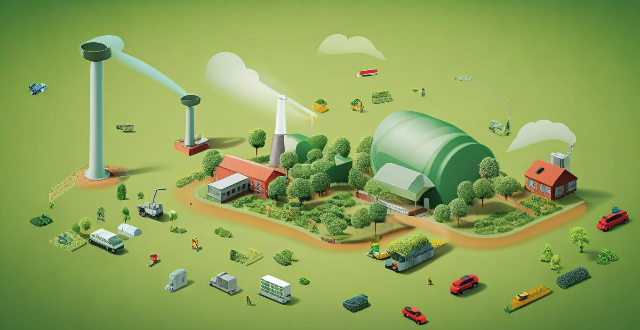
How does clean energy investment impact the environment ?
Clean energy investment positively affects the environment in various ways, including reducing greenhouse gas emissions, conserving natural resources, improving air quality, promoting sustainable practices, and enhancing long-term energy security. These efforts help mitigate climate change, protect ecosystems, reduce pollutants, encourage innovation and job creation, and stabilize energy prices. As environmental challenges persist, prioritizing clean energy investment is crucial for the planet's health and future generations.
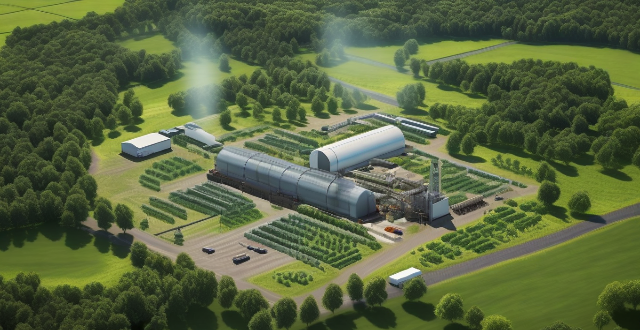
What is energy transition and why is it important ?
Text: Energy transition is the shift from traditional to renewable energy sources, important for reducing greenhouse gas emissions, promoting sustainable development, and improving energy security. Benefits include economic growth, environmental protection, and social progress.

What is the future outlook for clean energy investment ?
The future outlook for clean energy investment is positive, driven by government policies, technological advancements, and growing demand for sustainable energy sources. However, challenges related to intermittency, infrastructure integration, and competition from fossil fuels need to be addressed to ensure the continued growth of the sector.
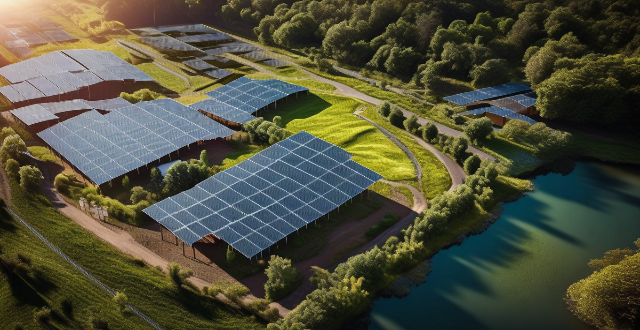
How does solar energy work ?
Solar energy is generated through the use of solar panels containing photovoltaic cells, which convert sunlight into electricity via the photovoltaic effect. This process involves absorbing sunlight, exciting electrons to a higher energy level, generating an electrical current, collecting it, and converting it into usable AC electricity. Solar energy is renewable, sustainable, cost-effective, and environmentally friendly, but its effectiveness can be reduced by weather conditions, and it requires additional equipment for energy storage. Despite high upfront costs, solar energy systems can lead to long-term savings on utility bills.
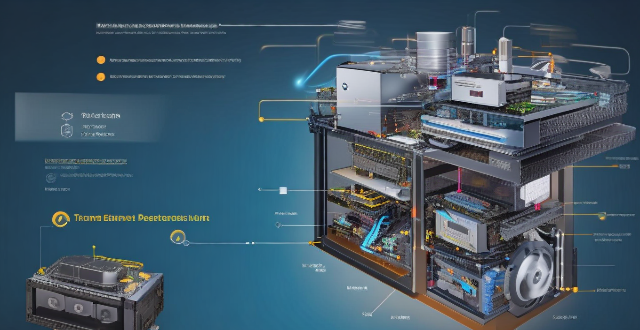
How do smart thermostats contribute to energy savings ?
Smart thermostats contribute to energy savings through automatic temperature control, energy-saving modes, learning capabilities, remote access and control, reporting and analytics, and integration with other smart devices. These features help reduce unnecessary energy usage and optimize HVAC system performance, leading to cost savings on utility bills without sacrificing comfort.

How do celebrities spend their leisure time ?
Celebrities enjoy leisure activities such as traveling, pursuing hobbies, spending time with family and friends, and engaging in philanthropy. They explore new cultures, take luxury vacations, participate in humanitarian trips, practice artistic pursuits, stay fit through sports, prioritize family gatherings and friendships, and give back to society through fundraising events and advocacy work.
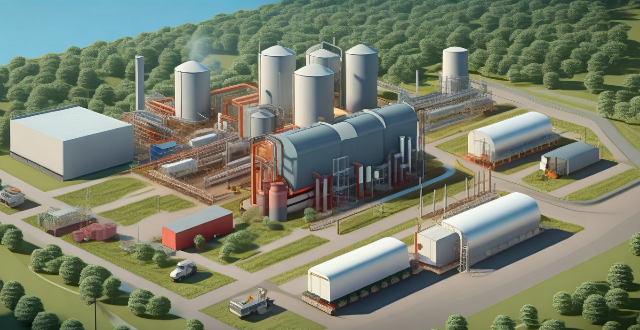
What are the economic benefits of investing in energy-efficient industrial equipment ?
Investing in energy-efficient industrial equipment can lead to reduced energy costs, increased production efficiency, potential tax incentives and grants, enhanced competitiveness, improved environmental sustainability, and greater long-term asset value. These benefits make such investments financially prudent and strategically sound for businesses looking to remain competitive and responsible in today's market.

What strategies should I use to manage my time during exams ?
Managing time effectively during exams is crucial for success. Here are strategies to help you prepare, allocate time wisely, prioritize questions, maintain a steady pace, review your work, manage stress, and stay healthy: 1. **Preparation**: Understand the exam format, practice with past papers, and study in advance to reduce last-minute stress. 2. **Time Allocation**: Allocate time according to the marks of each question, read instructions carefully, and be realistic about the time spent on each question. 3. **Prioritization**: Answer easy questions first to build confidence and mark difficult ones for review later. 4. **Pacing**: Keep an eye on the clock and maintain a comfortable pace to ensure all questions are answered thoroughly. 5. **Review and Adjustment**: Leave time at the end to review answers and check for errors. 6. **Stress Management**: Stay calm using deep breaths and relaxation techniques to manage stress during the exam. 7. **Health and Hydration**: Stay hydrated and eat lightly to maintain energy levels. By following these strategies, you can maximize your efficiency and performance during exams.